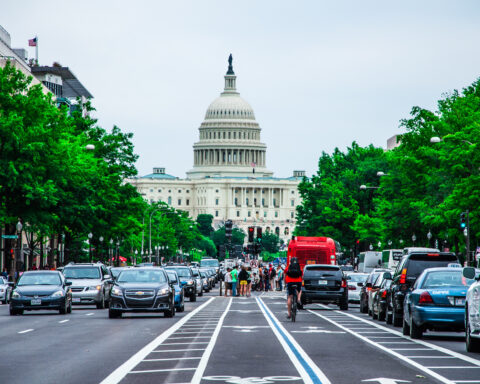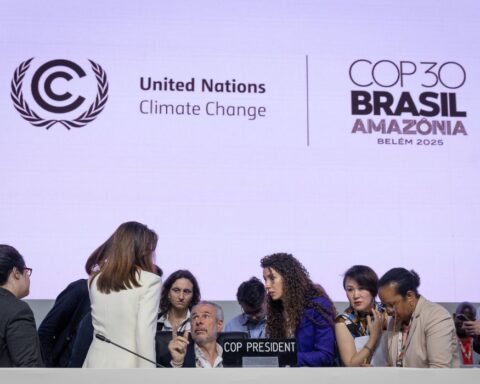Whoever invented the notion of herding cats never imagined the frustrations of guiding 190 nations along the complex path to net-zero. But that’s the mandate of Simon Stiell, the former environment minister of Grenada who is now the United Nations’ climate chief – the man most responsible for achieving the Paris Agreement goal of limiting climate change to 1.5°C by 2030.
With little to no power to enforce compliance, Stiell has responsibility without authority. In two years as the UN’s executive secretary for climate change, he has pushed for action at two COP conferences in oil-producing countries (Egypt and the United Arab Emirates) while seeing the number of fossil-firm lobbyists in attendance quadruple. And he’s about to do it again at COP29 in Azerbaijan. He has learned not just to argue for change, but to paint vivid pictures of the costly dangers we now face – and the safer, more just world we could build for a fraction of that cost.
In mid-July, Stiell stood in a roofless home on Carriacou, his home island, surveying the damage from Hurricane Beryl. “I and my community are experiencing the devastation that has become all too familiar to hundreds of millions,” he said in a UN video. “Beryl is yet more painful proof: every year, fossil-fuel-driven climate costs are an economic wrecking ball hitting billions of households and small businesses.”
If no action is taken to slow climate change, a German government-backed report released in April says the costs will total US$38 trillion a year through 2050. “The same report,” Stiell noted, “says climate action will cost less than a sixth of that.”
With degrees in business and engineering, eight years with Finnish-based Nokia, and business development experience with a Silicon Valley AI start-up, Stiell moves easily between the public and private sectors. He’s also led the fight for a multibillion-dollar loss and damage fund for hard-hit developing countries, to be paid for by affluent industrial nations. With Canada and other G20 nations dragging their feet, the fund was finally established – if not yet funded – at COP28 in Dubai last December.
Now Stiell says the world has just two years left to agree on actions to achieve the Paris goals. To save COP29 this month in Baku, he’s been arm-twisting for a “quantum leap” in climate financing, including non-loan programs to help struggling nations cut emissions without drowning in debt. On the bright side, says Stiell, “Bold new national climate plans will be a jobs jackpot and economic springboard.”
Rick Spence is a business writer, speaker and consultant in Toronto specializing in entrepreneurship, innovation and growth. He is also a senior editor at Corporate Knights.







